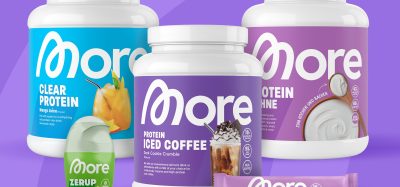Food better than supplements for longevity
Posted: 9 April 2019 | New Food Magazine | 1 comment
A new study is the latest research to show that most supplements may not do much to improve health and can’t compete with the benefits of a healthy diet.


A new Tufts University study involving more than 27,000 Americans is the latest research to show that most supplements may not do much to improve health – or at least can’t compete with the benefits of a healthy diet.
The researchers found that taking supplements didn’t lower the risk of death during the study follow-up period, while those who got the recommended amount of certain nutrients from foods had a lower risk of death in that time frame.
“These results are consistent with current dietary recommendations,” says study author Fang Fang Zhang, M.D., Ph.D., associate professor in the Friedman School of Nutrition Science and Policy at Tufts University. “The general U.S. population should aim to get adequate nutrition from healthy foods, and a healthy diet.”
Published in the Annals of Internal Medicine, the researchers analysed National Health and Nutrition Examination Survey (NHANES) data on supplements such as multivitamins, vitamin C, and calcium – which the study participants took – along with info on the foods they ate.
Taking supplements, the study authors found, didn’t translate to a lower risk of death from cardiovascular disease, cancer, or any cause for that matter. Getting adequate amounts of vitamin K and magnesium from food, however, reduced the risk of dying overall by more than 20 percent. And those whose diet had enough of vitamins A and K, copper, and zinc cut the risk of death from cardiovascular disease by half.
When the researchers analysed the data, they found that in supplement takers, nutrients from the foods they ate were protective, but nutrients from the supplements were not. In fact, they didn’t need supplements at all to meet their daily requirements for vitamins and minerals.
The study also highlighted the negative effects of overuse of supplements: For example, getting 1000mg per day of calcium in pill form was linked to a 62 percent increased risk of cancer. When people got that much calcium from food, however, it didn’t increase cancer risk, Zhang says.
One main takeaway from the study, Zhang says, is that if your diet is made up mostly of nutritious foods, supplements won’t necessarily offer any additional benefits.










What about people whose daily intake could not cover their personal needs or DRI for certain nutrient(s)?